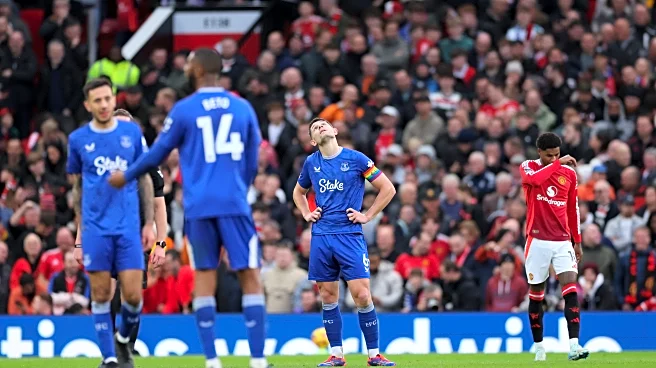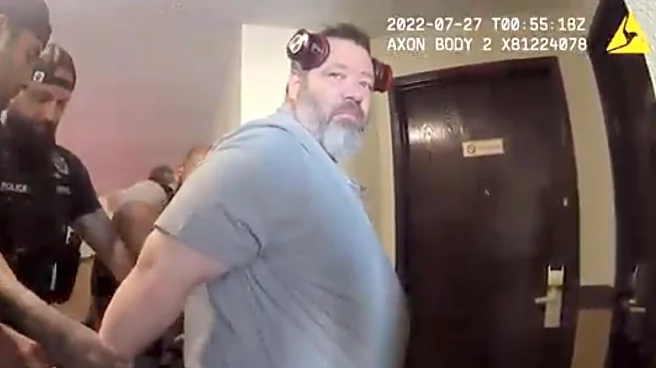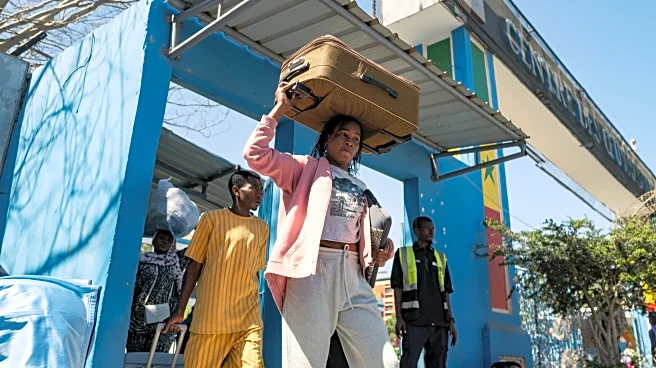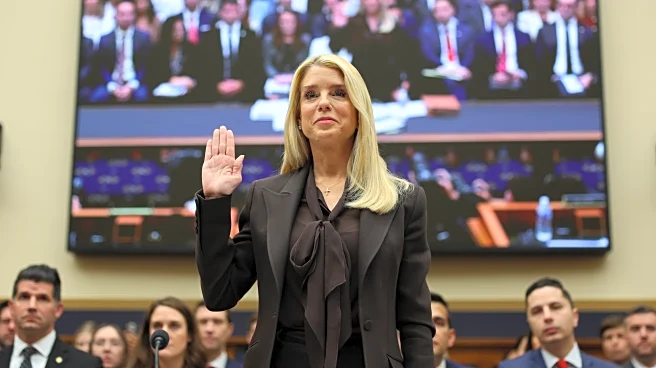It’s funny how a single result can almost completely reframe a situation, and a narrative. Prior to Everton’s 2-0 win over Fulham, before the third – and thankfully, last until March – international break
of the season, the team was without a victory in three, and had won just once from eight across all competitions. Following what was a comfortable dismissal of former Blues boss Marco Silva’s side, the Toffees are now unbeaten in two — which paints a rosier picture, should we choose to ignore the team’s overall form going back to September.
The Cottagers, who’ve only gained a single point on the road from six outings, were ideal opponents at Hill Dickinson Stadium, but you can only beat what’s in front of you, as the saying goes, and Everton certainly did that, turning in arguably their most complete performance of the campaign to date. The Blues are still in a slightly uncomfortable position, however, with Fulham sitting just one point below them, after their commanding home win over Sunderland at the weekend, which was far more clear than the 1-0 scoreline would suggest.
The team occupies 13th place in the table, ahead of tonight’s trip to Old Trafford, to face a newly resurgent Manchester United — not a stadium in which they’ve enjoyed much success over the years. This is the first of a run of six potentially tough outings which will shape Everton’s season heading towards the new year.

Form
So newsworthy has been Ruben Anorim’s tenure, that it’s a little surprising that today marks the anniversary of his first game in charge at United — a 1-1 draw away at struggling Ipswich Town. A week later – in classic Everton fashion – the club would serve the role of fall guy, for the launch of the new era under the Portuguese at Old Trafford, being beaten 4-0. It could be argued that this was the high point of Anorim’s first season, given the club’s woeful performance thereafter, which saw them finish 15th in the Premier League, with just 42 points, their lowest final position in the table since they were relegated from the old First Division, back in 1974.
The Red Devils hierarchy had pushed hard to get Anorim in as the hapless Erik ten Hag’s successor, so despite an unprecedentedly bad start in charge, they were determined to stick with their man. Under the club’s current regime, this equates to throwing vast sums of money at the problem, as had happened during the previous summer, when almost €215m had been splashed on reinforcing ten Hag, who had been hanging on by a thread at the end of the previous season. So it was with Anorim, and following the addition of left wingback Patrick Dorgu in January (€30m, Lecce), another €250.7m was invested in new players last summer.

The attack was targeted, with Wolverhampton Wanderers star man Matheus Cunha arriving for a fee of €74.2m, along with Brentford’s Brian Mbeumo (€75m) — fresh off scoring 20 goals for the West London minnows. The much sought after Benjamin Šeško (€76.5m, Leipzig), one of the most highly-regarded young strikers in world football was added, ostensibly providing the focal point for the team’s attacking play. Royal Antwerp goalkeeper Senne Lemmens was brought in, for €21m, to compete with Altay Bayindir.
In some ways, the exits were as eye-catching as the arrivals. Alejandro Garnacho ended five years at the club, the 21-year-old being surprisingly sold to Chelsea for a knockdown fee of €46.2m, and Antony’s loan to Real Betis was made permanent for €22m — a whopping €73m loss on a player signed only three years prior. Veteran defender Victor Lindelöf headed to Aston Villa on a free, along with Christian Eriksen (Wolfsburg), and several high-profile players departed on loan, including Marcus Rashford (Barcelona), Rasmus Højlund (Napoli), André Onana (Trabzonspor) and Jadon Sancho (Villa). United’s net spend over the window was €176.5m.
The new campaign began in much the way the previous one had ended, with the Red Devils taking only two wins from their opening six league games, against three losses, and also exiting the EFL Cup in the Second Round, against lowly Grimsby Town, of League Two. Subsequently, with Anorim under early season pressure, the team has responded, winning three on the bounce, over Sunderland, Liverpool and Brighton, followed by a couple of away draws against Nottingham Forest and Tottenham Hotspur. As of tonight, they sit in tenth position in the league table, being unbeaten in five.
Style of Play
Regarded as one of Europe’s most talented young managers, from his time at Sporting CP, Anorim has struggled to live up to the hype in the Premier League. It’s hardly ideal to be dropped into the managerial hotseat partway through a season, and it’s known that the now 40-year-old was reluctant to do so, envisaging perhaps that his highly-demanding, somewhat inflexible 3-4-2-1 formation may encounter some difficulties without adequate time to drill the players in its intricacies, and to recruit where needed. In this assessment, he was undoubtedly proven correct, as United crashed to a truly appalling season, by their lofty standards.
The formation itself is not something which is necessarily unsuited to English top-flight football, with its atypical physical demands, as Oliver Glasner at Crystal Palace has ably demonstrated, but the jury is out as to whether it’s going to work at United, under Anorim. Whilst they certainly improved the team’s attack during the summer transfer window, other areas remain a concern, with a slow defence, a midfield lacking in mobility and energy, and suboptimal options at wingback, all of which are critical to Anorim’s system. Quite why all these positions were ignored in preparation for the new season is a mystery.

United are average in the division, in both share of possession (50.4%, joint tenth) and pass completion (80.6%, 13th), and are moderately direct, with 12.7% of their passes going long. They are generating plenty of attempts on goal – 14.4 per 90 minutes – courtesy of a revamped attack, scoring 19 times, in-line with an xG of 18.2. Tonight’s hosts are one of the league’s most effective teams insofar as scoring from set-pieces, with six goals. Like Everton, they favour attacking down the left. The Red Devils are too easy to create chances against, allowing 14.4 attempts per 90 (joint 17th) and have conceded 18 goals, a little more than their xGA of 16.4. Remarkably, they’ve only conceded once from open play at Old Trafford, but five from dead ball situations.
Team Assessment
Lemmens quickly superseded the shaky Bayindir in goal, and has looked competent so far — at least by comparison to last season’s incumbent, the erratic Onana. The team hasn’t lost a game since he took over, so this may be recency bias talking, as his save percentage of 66.7% puts him in the bottom 26% of goalkeepers in major leagues. In the absence of Harry Maguire, the three central defenders will be Matthijs de Ligt, who scored last time out, Lenny Yoro and career fullback Luke Shaw. The former is dominant aerially (65% win rate), though not the quickest, whereas Yoro is young and inexperienced, but possesses recovery pace.
The right-footed Diogo Dalot has been the regular starter at left wingback, though Dorgu got the nod last time out. On the right, attacking midfielder Amad Diallo has been preferred, and he was moved back there after an hour against Spurs, replacing Noussair Mazraoui; this could be the situation Everton face tonight. In midfield, Bruno Fernandes and Casemiro have been partnered all season. Fendandes, now 31, doesn’t cover the ground quite like he used to, but is still a creative force, with 2.66 key passes per 90. The veteran Brazilian, meanwhile, is holding it together defensively, making 3.97 tackles and interceptions (combined) and 1.76 blocks per game.
With Šeško out injured, it’s probable that Cunha will lead the line. The ex-Wolves standout has mostly played as a striker during his career, but rarely to great effect. He has just one league goal so far this term – compared to 27 in his last two years in the West Midlands – but by contrast, Mbeumo has prospered, deployed as an inside forward in Anorim’s system. Quick and agile, he plundered 20 goals last term for Brentford, and has six in all competitions so far at United. Likely to line up alongside Mbeumo, in front of the midfield, will be Mason Mount. Dogged by injury since moving from Chelsea, and on the verge of becoming a forgotten man, he’s had a little better luck this season, and when fit adds a lot.
Prediction
First off, what side will David Moyes select for tonight’s game? The conventional wisdom is not to change a winning team, if possible and the Blues manager could be thought of as one who would stick to traditional, perceived wisdom. James Garner’s long-debated move to right back – replacing Jake O’Brien – brought some dividends against Fulham, as regards balance, providing welcome support to the often isolated Iliiman Ndiaye, Tim Iroegbunam providing physicality in midfield. However, with the news that Merlin Röhl will now be out for several weeks, I see Moyes taking a cautious approach, putting Garner back in the centre, with the Irishman again at right back. Otherwise, barring any late injury issues, I see an unchanged Everton.

Perhaps more important than the team selection, will be how the visitors tackle the game itself, in terms of mentality. Everton have won only once at Old Trafford since 1992: back in 2013, when Moyes was United manager. The Blues have managed an occasional draw, but it’s been undeniably slim pickings — though not as bleak as between 1995 and 2005, when they failed to beat their near neighbours at all, even at Goodison Park. Moyes’ record at the grounds of the division’s elite is unarguably appalling, so there’s a valid case to be made for him to do the exact opposite tonight, to what he usually does in these games. Will he though?
I doubt it. United have started games strongly this term, only to fade during the second half, and I feel that knowledge of this tendency will serve to strengthen Moyes’ innate inclination to set the team up to ride out any early storm, with the intention to keep it tight, and to play themselves into it later. Sadly, I believe this will merely invite pressure, get the home crowd behind their team and lead to the Toffees conceding goals, putting the game beyond them before they even get going. United’s attack is mobile, fast and tricky and the Blues defence is ill-suited to handling movement — particularly if O’Brien is in at full back.
Everton’s best chance is probably to try to pressure United, but I don’t see how this can be achieved without the defence pushing up higher than I’m comfortable seeing, given its chronic lack of pace. But if Everton sit deep, do they themselves have enough speed to hurt the hosts in transition? Set-pieces are both a strength and vulnerability of tonight’s opposition, but can the visitors get high enough, regularly, to take advantage of free kicks and corners? Whilst the Red Devils are far from being the side of old, I fear that this could be another one of those Monday nights, a big nationally televised game, where the Blues fall into the usual pattern of ideal opponents, for a manager who still has plenty of questions to answer.
Score: Manchester United 3-1 Everton
Statistics provided courtesy of fbref.com, transfermarkt.com and whoscored.com










